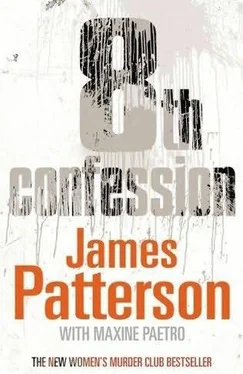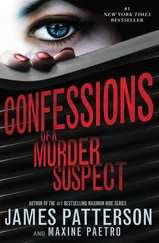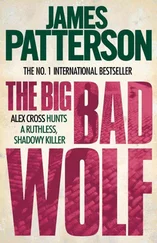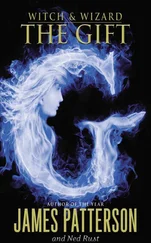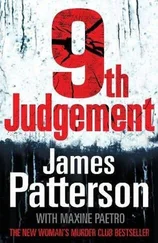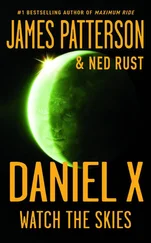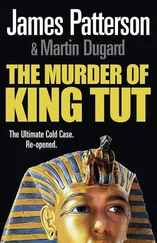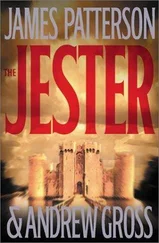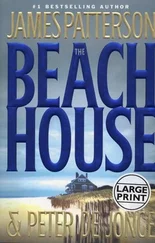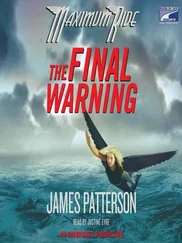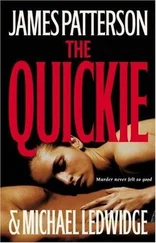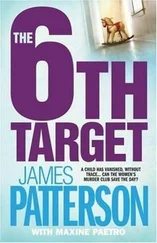“In sum, I looked at everything but their dreams. The autopsies were completely negative.”
Everyone groaned. Even me.
“I spoke with Ethan Bailey’s physician,” Claire continued. “I spoke with Isa’s gynecologist. Both doctors had complete and recent medical histories of their patients, and the Baileys passed their physicals with five stars each, ten stars total. Those kids knew how to take care of their bodies.
“So as I hung up the phone after talking to you ten minutes ago,” she said to Jacobi, “the rushed toxicology report walked in the door.
“I was ready to opine that if there was poison involved, one of the Baileys whacked the other and then took poison him- or herself, so we’d have homicide-suicide or double suicide. But I got surprised – and not in a good way.”
Claire had us by the eyeballs.
No one spoke. Maybe no one breathed.
Claire waved a computer printout, said, “Toxicology was negative. No poison, no opiates, no narcotics, no nothing. Cause of death? No idea. Manner of death? No idea. Something stinks, and I don’t know what,” she told us, “but the likelihood of these two individuals, with completely negative autopsies and completely negative toxicologies, expiring at the same time is statistically astronomical. ”
“Oh, man,” I muttered. “So much for ‘The tox screens will give us a clue.’ ”
“Okay, okay, I was wrong about that, Lindsay. Since there’s no such thing as ‘sudden adult death syndrome,’ we’re thinking homicide. Until we’ve got something to go on, I’m giving Ethan and Isa Bailey Chinese death certificates.”
Chi spoke up, said, “Claire, my darling, that’s a new one for me. What’s a Chinese death certificate?”
“Pen Ding,” she cracked. “Case open. Any other questions?”
“Yep,” said Jacobi. “What now?”
Claire took her feet off the desk, stood up, and said, “I’m going home. Going to kiss my baby. Then I’m going to eat an entire turkey potpie followed by a bowl of chocolate pudding with whipped cream, and no one better try to stop me.”
She gazed around the room at our faces, slack from the long day and gray from the overhead fluorescent lights. I was pretty sure we looked like the living dead.
Jacobi in particular looked awful. He would be the one telling the family and the press and the chief and the mayor that at the end of the day, we were clueless.
“I know you’re just getting started, and so am I,” said Claire, her smile beaming a small ray of hope into our collective gloom. “I sent the samples back to the lab. Let the night crew take a crack at this,” she said. “I’m asking them to run the tests again, this time instructing them to look for the weird, the strange, and the bizarre. ”
CONKLIN AND I spent seven full hours interviewing Isa and Ethan Bailey’s friends, family, and the short list of their non-live-in personal employees: Isa’s secretary; the dog walker, who was also a gal Friday; and the children’s tutor.
Nothing popped. We filled our notebooks and moved on.
While the rest of my team went back to the neighborhood canvass, Conklin and I went to see Yancey and Rita Booth, Isa’s indescribably wealthy parents, who tearfully invited us into their magnificent Nob Hill home.
We spent hours with the Booths, mostly listening and taking notes. The Booths were in their sixties, devastated by Isa’s death, and needed to talk their way through the shock by telling us about the Booth and Bailey family histories.
According to Yancey Booth, there was a hundred-year-old dispute between the Booths and the Baileys, ongoing to this day, that had started with a plot of land with ambiguous boundary lines.
We learned that Ethan Bailey had three brothers, none of them successful, and that little fact opened a door to a new branch of the investigation.
We looked at the Booth family photos going back to the gold-rush days, and we met the grandkids, or rather they met us, demanding to be let in to see the police.
At five in the afternoon we turned down an offer to stay for dinner. We left our cards and assurances that Isa Booth Bailey was our number one priority – and then we got the hell out of there.
As we walked down the front steps, I grumbled to Conklin, “We’re going to be working this case until we retire.”
We got into the car and sat there, talking over what we knew about the lives of Isa and Ethan, wondering if this case would ever come together.
I said to Conklin, “Her parents are never going to get over this.”
“They sure loved her,” he said.
“When Mrs. Booth broke down -”
“Heartbreaking. I mean, I think she could really die of this.”
“And those little boys.”
“Just old enough to understand. When the smaller one, Peter, said, ‘Please tell me why anyone would do this to Mommy and Daddy…’ ” Conklin sighed. “See? Isa and Ethan couldn’t have done it. I don’t see one killing the other. Not with kids like that.”
“I know.”
I told Conklin about my sister’s kids, Brigid and Meredith, who are about the same age as the Bailey boys. “I’m going to call my sister tonight. I just want to hear the little girls’ happy voices.”
“Good idea,” Conklin said.
“We were supposed to visit them. Me and Joe. He had to go on a business trip.”
“That’s too bad. But you can see Cat when he gets back.”
“That’s what he said.”
“You like kids, Lindsay,” Conklin said after a moment. “You should have some.”
I turned away, looked out the window as all those forbidden thoughts tumbled over one another, how close Rich and I had become, the taboo words and deeds, the smell of his hair, what it had felt like to kiss him, the part of me that regretted saying no because now I would never know how we would have fit together.
“Lindsay? You okay?”
I turned to him, said, “I’m just thinking,” and when I looked into his eyes, there was that hit, that arc of electricity going from me to him to me.
A phone rang in the distance.
On the third ring, I grabbed my cell off my belt, feeling mad, sad, and glad – in that order. It was Jacobi calling, but I wouldn’t have cared if it had been a wrong number.
I’d been saved by the bell.
Because in another moment, I might have suggested doing with Conklin what I was thinking – and all that would accomplish would be to make me feel worse.
CLAIRE STOOD IN the center of the squad room again, but this time she looked weird, like she’d taken a punch.
“For those of you who haven’t heard my lecture, there are two types of cases – one type is circumstance-dependent and the other is autopsy-dependent.”
She was pacing now, talking as much to herself as she was to the ten of us, who were waiting to hear about the second tox run.
“That homeless guy, you know the one, Bagman Jesus. He had trauma all over him, six gunshot wounds to the head and neck, plus a postmortem beat- down. His body was found in a neighborhood frequented by drug dealers – but I don’t even need to know the circumstances.
“Six gunshot wounds. That’s a homicide.
“Now we’ve got two dead people found in their beds. Got a completely negative autopsy, completely negative environment…”
She stopped speaking. Swallowed.
“The tox run for the weird, the strange, and the bizarre, ” I said, trying to give her a little push.
“Negative. Completely negative, so thanks, girlfriend, I almost forgot what I was saying. But now I remember: the Bailey case is circumstance-dependent.
“And a circumstance-dependent case means we need police work. You all know what I’m getting at. What were their finances like? Anyone having an affair here? Anyone leading a double life? You gotta help me out, give me a direction, because I’m twisting in the wind.”
Читать дальше
